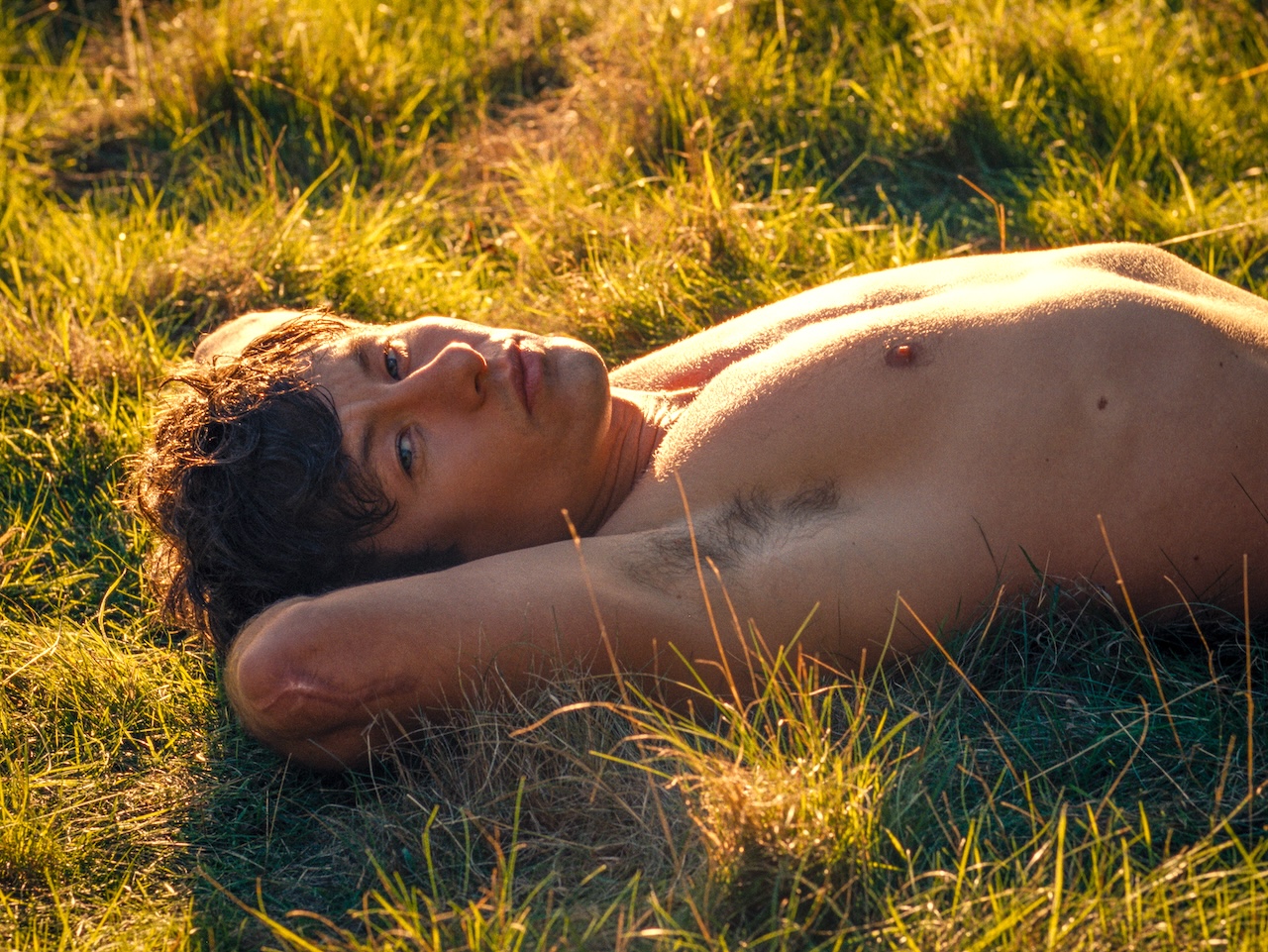“I’ve spent my life writing,” says Emerald Fennell. “It’s something I’ve done ever since I was a child. It’s something I would be doing whether I could make films or write books or not.” After University, Emerald wrote a pile of spec scripts to “find her voice.”
During the hiatus of BBC’s Call the Midwife, where Emerald played Nurse Patsy Mount for twenty seven episodes, she wrote three books. “My last book, Monsters, which was an adult novel, Showrunner Jessica Knappett read it and asked me to write on the fourth season of her amazing show, Drifters.”
“I think I had that thing that many screenwriters had where I had a few things bought, but didn’t go. It’s a constant process of nearlys until you get that first credit, which Jess gave me.” After Drifters, she wrote and directed a short called Careful How You Go that went to Sundance and helped her pitch and ultimately write and direct Promising Young Woman, a dark comedy about a young woman traumatized by the tragic events of her past.
Then, Emerald wrote on Season 2 of Killing Eve and now she’s back on the silver screen as writer/ director of Saltburn, where an Oxford student finds himself drawn in the world of a charming aristocratic classmate.
This variety of creative endeavors — acting, writing, directing — helps her work on multiple projects seemingly simultaneously, but what she’s doing now is what she has always wanted to do.

Emerald Fennell
“I always wanted to write and direct. It’s a very difficult job to get into or at least I didn’t know how to do it. We have drama schools in England, but we just started to have film schools, so it wasn’t something I even knew about as a teenager. I knew I wanted to make my own things so what I was doing was anything I could to learn to write, be that publishing books or being an actress, but I wanted to get to the stage I am now. It’s wonderful to have the variety, but I want to focus more on one thing.”
Writing is Acting
Emerald sees these many roles as coming from the same place. “When I was little, I would make up stories, but I would be all of the characters,” she says. “It was both in my head and sort of acting, like having a split personality or something.”
“Serial killer. Cheerleader. Bewitched snowman. It comes from the same place. It’s very helpful to have been an actor because there’s a rhythm to speech. There’s a rhythm to each character’s speech. You can’t write only on the page. I try to only write in my head for years and years. I go over scenes. I live in houses. I live in worlds.”
For her latest film, Saltburn, she lived in that story for seven years. “I try to preserve that feeling until the very last minute when I know it’s finished. Then I write it down. It keeps that human quality. The moment you start writing on paper, it changes the nature. It’s a very different thing to speaking.”
“As an actor, you could tell when scripts were redrafted on paper a lot because they stopped having that natural rhythm of speech. People stopped having individual voices and started having a screenwriter’s voice. That’s something I’m careful to have looked out for.”
“Basically, I will live in these stories for years and there are always a few of them, at various, different [stages]. Some naturally drift off. Some you can’t help but go back to. The process, it takes as long as it takes. I know something is ready because it’s a physical feeling.”
Carrying Stories for Years
Through this internal check-in, she allows the next project to filter itself or rise to the surface. “It means the love for something and the vitality stays because it’s the opportunity to sit and dream, basically. Of course there are frustrations that come with writing, but if you’re not working on paper, you’re less hard on yourself. It’s not like staring down the barrel of draft 18. You’re on draft 600, but it’s in your head, so it still feels exciting and has erotic potential rather than this black and white artifact. It’s also part of the development process.”
She adds, “I won’t show anyone anything until it’s as close to finished as it can be, before actors come on board. So no one will know anything. They won’t even know the title because the moment you start pitching an idea, it’s difficult because when you deliver something, people are bored of it or it’s different than what they thought. When you hand in a full script that no one is expecting, it’s closer to what it’s like to go see a movie. That’s the joy for me, whether it’s delivering the first draft or delivering the film.”

Felix Catton (Jacob Elordi) Photo courtesy of Prime Video
As she carries a story for seven years, there are elements that remain the same (“the bathtub, the shepherd’s pie, the moth”) but various elements that change. “Characters change. Whole people come and go. People exist and then don’t. It’s a constant adjustment of character. It’s going into those rooms and seeing what the most important dynamics are and also thinking as Oliver (Barry Keoghan).”
“How do I process desire? How would I get into not just a world but a system that’s impossible to get into? What are the deduction methods I would employ? It’s the same for Cassie (Carey Mulligan), how would I get a teenage girl into my car without force? It’s quite simple actually. How do you make it interesting for people in middle class society and have a savior complex?”
Crafting Epic Endings
Living in these stories, especially dark stories like Promising Young Woman can be a burden, but Emerald sees it another way. “It’s more troubling to me that Promising Young Woman contained things that were in every comedy movie that I grew up watching. It was distressing that the things happening in that film were common. That disturbs me. Being able to talk about it and write about it, that’s a good thing for me. The thing I find difficult and troubling is not being able to write about these things.”
In terms of the shocking ending, Emerald believes it was inevitable. “It was inevitable because the film is about the limits of revenge. It’s a revenge film about why revenge films offer an empty catharsis. The thing I felt so strongly about that genre is that women play men at their own game, that women should result to violence to combat violence and that’s not possible, so it’s not fair to imply that we could just put on a nurse’s uniform and shoot or stab our way out of this. It felt important to me to say there’s a reason why we can’t do these things. It’s unfair. It’s like saying ‘why didn’t you?’ And this movie shows why we don’t, because we can’t.”
She continues, “It is very distressing but there was no way in that room, which I had visited so many times, there was no way of winning. It wasn’t possible and it wasn’t honest, so it was inevitable. That’s not to say that it was easy or that everyone responded to it, but it was the thing that felt most truthful to me. Then, after that scene, we have the most broadly comic scene in the whole movie, which is two guys laughing having killed a stripper at a bachelor party. The reason why it’s comedic is that everyone laughs. The protagonist is dead on the bed and everyone laughs because we’re conditioned to, so the whole film was designed to ask, what are we laughing at? It’s a comedy, but it’s asking why we’re laughing.”
As for crafting shocking endings, Emerald says it depends on the story. “With Saltburn,” she says, “it’s a little like Promising Young Woman. There’s the film we think it’s going to be and the film that it is. For me, it’s not just, what’s the most compelling or what’s the most satisfying because the best endings are often unsatisfying or leave you with questions, but what I wanted was a feeling of evil glee. Total and utter sympathy for the devil. Heart racing, complicated pleasure. That was the driving force. What are we going to feel when we leave?”
As for advice for writers, Emerald says “it’s difficult because everyone’s method is so different.” That said, for her, “Writing, whether that’s writing or just thinking, you can’t do too much of it, even when it feels absolutely futile. Not just having one thing you are going to make over, reworking and reworking. Leave it, do something different, try every genre. Don’t feel oppressive, as if there’s only a certain way to tell a story, not just writing it but delivering it. Things don’t have to adhere to a style. None of that matters. Write what you think is amusing, titillating, or difficult. Give yourself permission to be bad. Give yourself permission to be fun or cheesy or unsubtle. Something that brings you joy will likely bring others joy.”
This interview has been condensed. Listen to the full audio version here.

